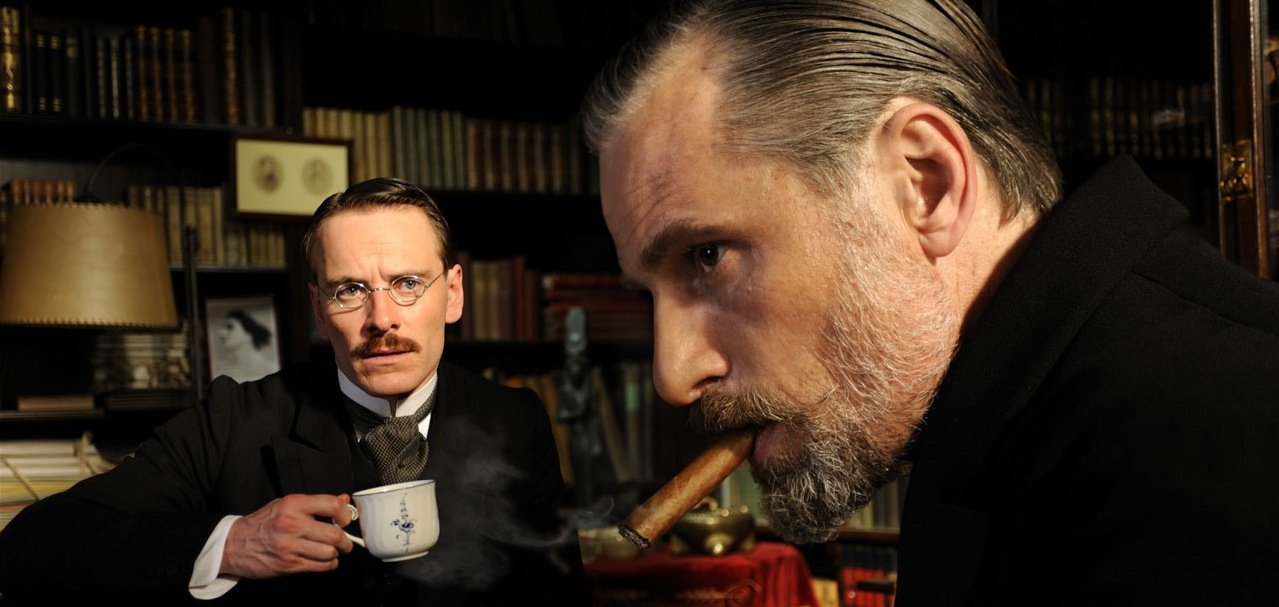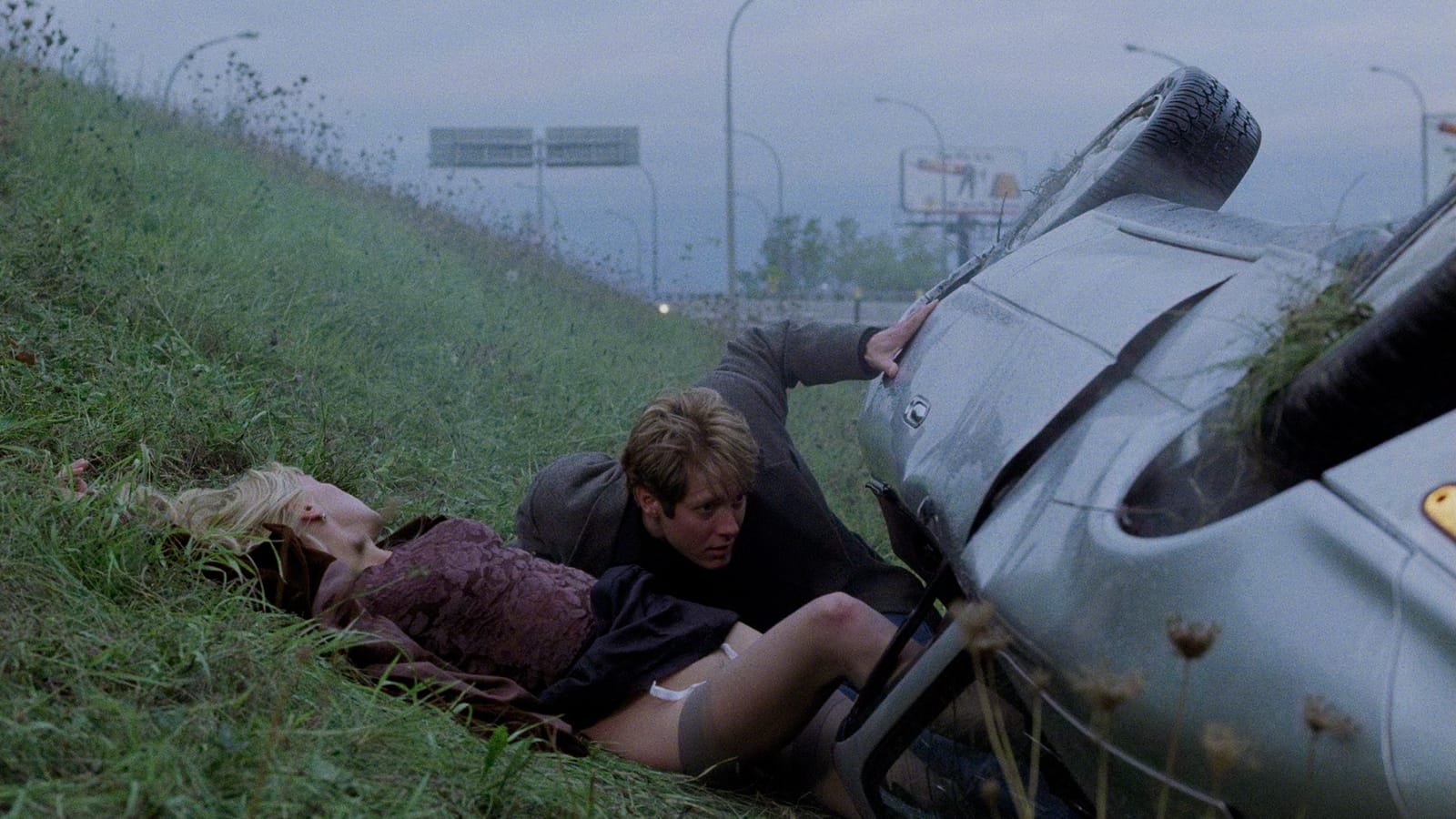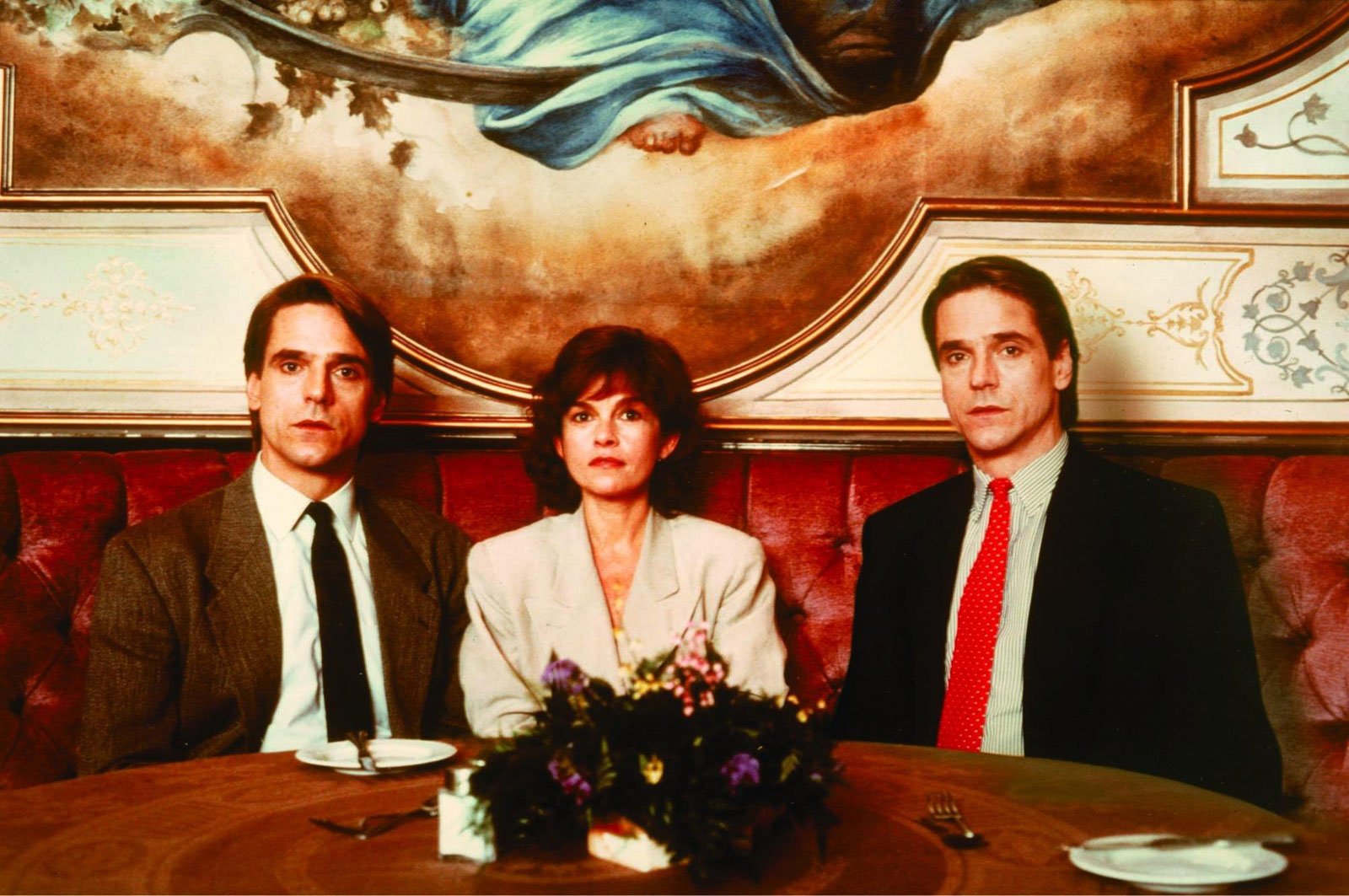The Uncanny Body Horror of David Cronenberg by Craig Hammill
David Cronenberg’s body of work is one of the most fascinating in its tension of a creative spirit constantly pushing itself in new directions while always somehow being true to a core set of fundamental obsessions.
In Cronenberg’s now 50+ year career (his first movie STEREO was made in 1969), he’s moved from the prog rock art-house Canadian sci-fi phase (STEREO and CRIMES OF THE FUTURE) to his Canadian body horror cycle (the 70’s SHIVERS, RABID, THE BROOD) to an 80’s international body horror phase (SCANNERS, VIDEODROME, THE FLY, DEAD RINGERS) to ultimately a surprisingly more narrative driven subtle psychological yet still disturbing phase (A History of Violence, Eastern Promises, A Dangerous Method).
And now Cronenberg seems interested in tying the north and south poles of his career together with his new movie Crimes of the Future starring Viggo Mortensen which appears to be a remake of one of Cronenberg’s very first movies.
What makes Cronenberg such an audacious, such an important, such a vital moviemaker is (as with many moviemakers) his utterly idiosynchratic yet thought provoking understanding of life and story. Cronenberg is a committed atheist who has constantly asserted that life ends with death. There is no God. There is no afterlife.
Everything is rooted in the body. When the body dies, everything dies. Including consciousness.
But for Cronenberg this isn’t meant to be some fatalistic view of existence. Rather, he seems to feel if you can confront that reality then you can really get into some interesting topics.
Because that then means that all sense, all perception, all understanding of existence is ALSO rooted in the body. And thus if the body changes or mutates, perception changes and mutates.
Is the evolution of the body and the mind always a “wondrous” progress or is it filled with horrific pain, trial, and error?
In a funny way, Cronenberg has been taken to task when characters in his later movies (most noticeably Eastern Promises and A Dangerous Method) expressed a profound belief in God. Cronenberg pointed out he was being respectful of the truth of those characters but had to remind his inquisitors that this is not the same as being reflective of his own world view.
In just this way, this writer has to state he is spiritual and does believe in God. But that in no way interferes with his respect and desire to be challenged by the bold, difficult, thorny, pertinent questions posed by atheist artists like Cronenberg, Kubrick, and many others.
In some ways, one’s world view is only as strong as one’s ability to confront the strongest oppositional world views that challenge it. If you shun or avoid things that disquiet or upset your world view, how do you stay committed to truth? How do you evolve?
Such wrestling is as uncomfortable as the journeys of many of Cronenberg’s characters through body horror.
Cronenberg, like so many of the best moviemakers, has always somehow been able to knead into his movies the anxieties, tensions, stresses, worries of the society around him into his horror. Shivers (aka They Came From Within) is somehow both a really unsettling movie about slugs that infect the residents of a high end condo and turn them into zombie like sexual beings AND a clear questioning of the 70’s hedonistic values which may not ultimately lead to the self-awareness or self-fulfillment for which many hoped.
Cronenberg has admitted that The Brood, a story of an estranged husband’s realization that his wife’s obsession with a new kind of therapy may be turning her into a homicidal mutant and one of this programmer’s personal favorites, was made as a kind of exorcism of the horrible experience Cronenberg went through during his divorce from his first wife. Now it’s pretty certain that Cronenberg’s first wife, Margaret Hindson, probably had a story to tell herself which might have put Cronenberg himself in the villain/destructive role. But The Brood really succeeds ultimately as a parable on the devastation that the marriage, parenthood, divorce cycle can wreck on all involved.
Cronenberg’s understanding of “body horror”-here defined as a sub-genre of horror movie in which characters undergo horrible, sometimes wanted, sometimes unwanted, mutations of their body, physiology-is about as platinum level as you get. Nobody gets right to the “nub” of the body horror philosophical question like Cronenberg.
Because Cronenberg feels that all perception, understanding comes from the body, everything, all questions, really come back to the state of the body. He subversively and brilliantly took on the job (from Mel Brooks no less who produced!) of re-making the 50’s classic The Fly and turned it into a three hander about jealousy, impulsiveness, and self-destructiveness. Jeff Goldblum’s briliant scientist may have invented a molecular transporter but he’s still subject to horrible jealousy when he thinks his new lover, journalist Geena Davis, is two-timing him. He gets drunk and prematurely tests out his machine without the rigors of cautious failsafes. So of course things go wrong. And his body and consciousness mutate.
What fascinates this writer most is how Cronenebrg’s later movies-specifically Eastern Promises and A Dangerous Method-question and interrogate some of the assumptions of his earlier movies. This may be as simple as a watching a great moviemaker gain some quiet and personal wisdom with age. But the characters in these movies are more thoughtful, less impulsive. They have an inner strength to resist the cult like siren’s calls of self-destruction or disease that earlier characters in The Fly, Dead Ringers, Shivers were unable to resist.
A Dangerous Method particularly is fascinating since Cronenberg is willing to give both the pure materialist/psychological world view of Freud (played by Viggo Mortensen) and the spiritual/transcendent worldview of Jung (played by Michael Fassbinder) equal time in the ring. This is no more better represented than the fascinating scene (based on a real-life incident) where Freud and Jung are interrupted in conversation by a wood snapping sound. Jung claims he knew beforehand that sound would occur. Freud is utterly dubious. And the two begin to drift apart.
Possibly the greatest melding of early Cronenberg and later Cronenberg is in Cronenberg’s two middle period masterpieces Crash and Dead Ringers. Crash, an adaptation of a J.G. Ballard novel, follows a group of intensely sexual people who discover an erotic and emotional connection to pain through the disfigurement of their bodies via car accidents.
Yeah. Not for everyone.
Cronenberg achieves a beautiful kind of tension between viewing his characters subjectively and objectively. There’s an uncomfortable eroticism (and maybe even sympathy) Cronenberg achieves through wounds, car steel, obsession but he also has a kind of objective understanding of the severe limitations of this kind of sexuality based on desecration. In the end, the married couple at the heart of the movie seem to still struggle to find a way to weave their still burning restless sexuality with a need to really connect emotionally.
Dead Ringers, this programmer’s personal favorite, pulls off the nifty hat trick of never being outright gory while possibly being THE most disturbing movie in all of Cronenberg’s ouevre. Twin gynecologists (both played by Jeremy Irons) have a kind of ALPHA and BETA personality that includes sleeping with the same woman (though she is often initially unaware). Their dominant and submissive personalities ultimately lead to drug addiction, mysogyny, madness, and death.
Dead Ringers is so affecting because it so intensely focuses on the slippery slope of destructive behavior any dysfunctional relationship could find itself on. The strength of mind and presence of spirit it takes NOT to give in to one’s weaknesses is often Herculean.
Very few of us really like to think about all the horrible things that could happen to our body: disease, disfigurement, dementia, etc. But that’s why filmmakers like David Cronenberg are so important. He somehow has found a way to explore these themes in a way that is still (miraculously) palatable cinematically.
In many ways this writer has always felt that the concerns of atheists and believers are not really contradictory or oppositional. They are, rather, complementary. Like visitors in a hotel who have two totally different views from their windows. One sees the beautiful woods. The other sees the homelessness, disease, and violence of the alleyway. Both views are equally true. But neither would necessarily viscerally understand that unless they were able to occupy both rooms.
While Cronenberg makes this writer a bit more anxious and worried, that’s probably a good thing.
How else can we get closer to the truth than to be irritated, challenged, prodded out of our comfort zones and political and tribal bubbles?
If, as Abraham Lincoln said, “I am nothing, but truth is everything” then a commitment to truth, or, maybe more to the point, the sincere pursuit of the truth, must be the dangerous goal of all artists. .
Thank you David Cronenberg.
Craig Hammill is the founder.programmer of Secret Movie Club.





